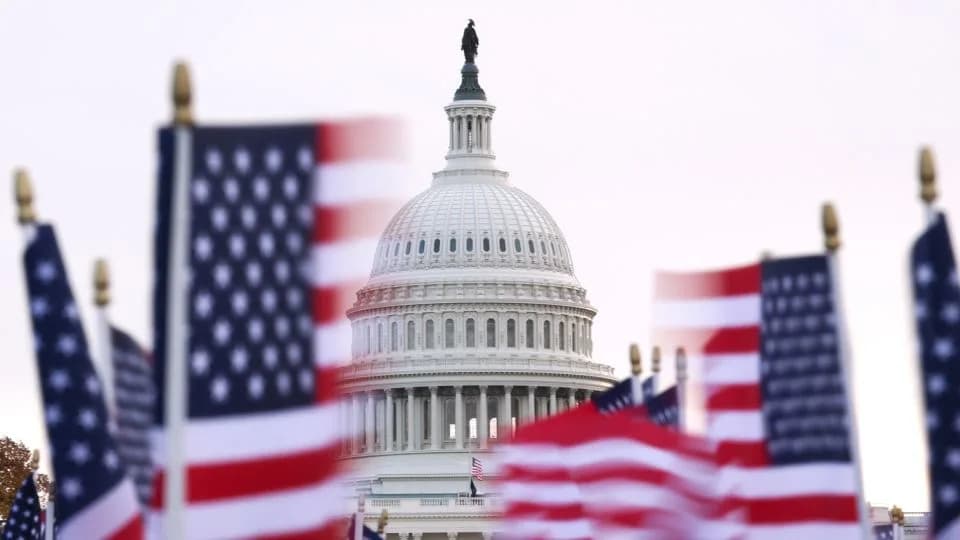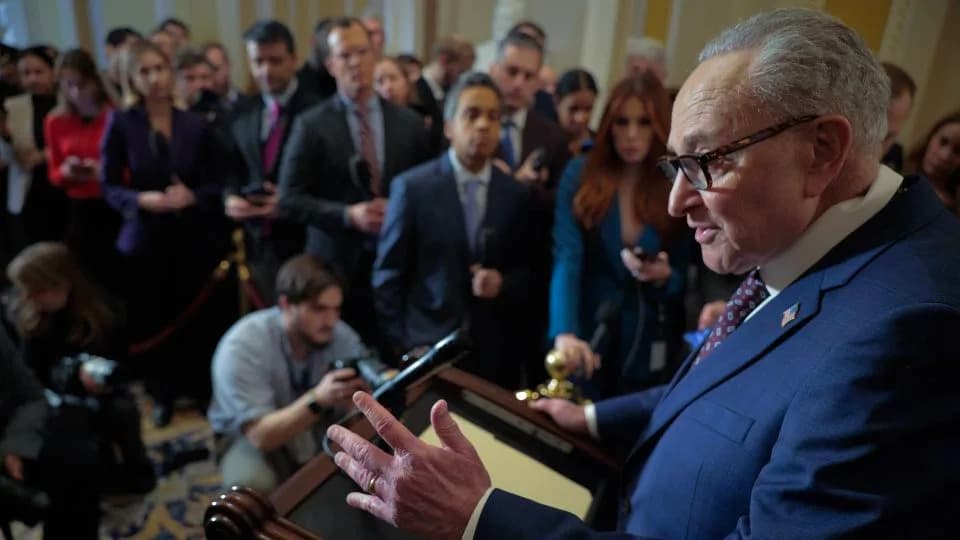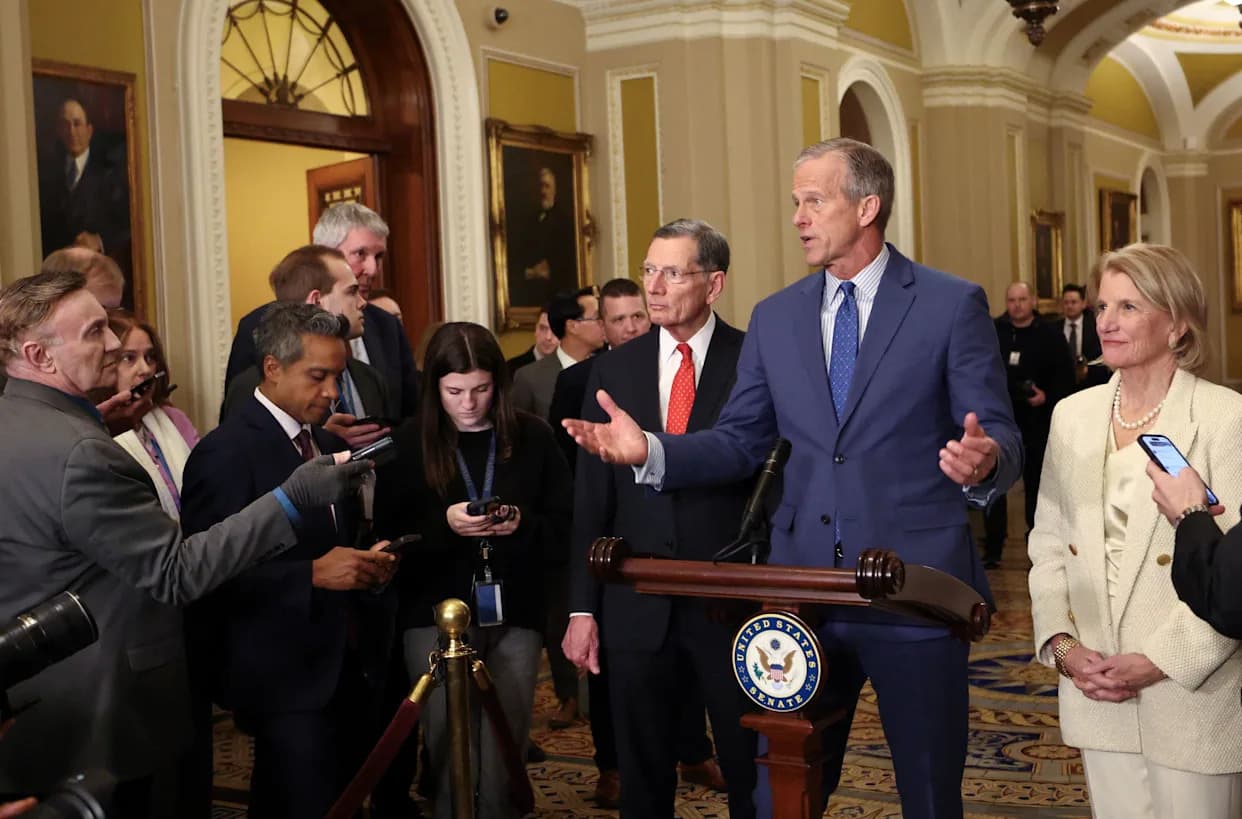The Senate advanced a bipartisan package to end the longest federal shutdown, funding much of the government through Jan. 30 and guaranteeing back pay for furloughed employees. The deal reimburses states for SNAP and WIC costs and includes several full-year appropriations, including a Veterans Affairs bill through Sept. 2026. However, it postpones action on Affordable Care Act premium tax credits, scheduling a December vote that left many Democrats opposed. The package now faces potential delays in the Senate and a difficult path in the House.
Bipartisan Deal Could End Historic Federal Shutdown — What the Bill Actually Does

WASHINGTON — A bipartisan congressional package aimed at ending the longest federal government shutdown in U.S. history appeared likely to move forward after a small group of Senate Democrats joined Republicans to clear procedural hurdles. The compromise would reopen large portions of the government and guarantee back pay for furloughed workers, but it leaves a major fight over expiring Affordable Care Act premium tax credits unresolved.
What the package provides
The measure includes a short-term funding stopgap that would keep much of the federal government operating through Jan. 30, largely at current funding levels. Attached to that stopgap are several full-year appropriations bills covering agriculture programs, military construction and a Veterans Affairs bill funded through Sept. 30, 2026.
The package also ensures that states that fronted money to keep the Supplemental Nutrition Assistance Program (SNAP) and the Women, Infants and Children (WIC) nutrition program running during the shutdown will be reimbursed.
“This shutdown has gone on far too long,” said Sen. Susan Collins, R-Maine, chair of the Appropriations Committee, calling the inclusion of multi-year bills a significant step.
Health-care subsidies remain unresolved
Democrats failed to secure an immediate extension of Marketplace premium tax credits under the Affordable Care Act — a key demand during the shutdown that affects roughly 24 million people who buy insurance on ACA exchanges. Rather than extend the subsidies now, the package schedules a separate vote on the issue in December, weeks before the subsidies are set to expire. That delay prompted many Democrats to oppose the measure.
Sen. Elizabeth Warren (D-Mass.) said, “The American people want us to stand and fight for health care,” explaining why she opposed the deal.
Protections and back pay for federal employees
The agreement would roll back several personnel actions taken during the lapse. It rescinds certain layoff notices and protects employees from future reductions in force tied to the funding lapse. It also guarantees back pay for federal employees who were furloughed or who worked without pay — a customary benefit the administration had at times left in doubt.
How the measure advanced and remaining hurdles
Late Sunday the Senate cleared a key procedural vote, 60-40, with eight Democrats joining most Republicans to advance the legislation. Senate Democratic Leader Chuck Schumer of New York voted against advancing the bill because it did not fully preserve health-care funding.
President Donald Trump, returning to the White House after watching the Washington Commanders play the Detroit Lions on Sunday night, said, “It looks like we’re getting close to the shutdown ending.”
Political and procedural obstacles remain. One Republican, Sen. Rand Paul (R-Ky.), voted against moving the measure forward, citing concerns that included a hemp industry provision. Several hardline conservatives briefly delayed votes while pressing for amendments; it is unclear whether they will stage further objections.
When the package reaches the House, Speaker Mike Johnson of Louisiana would preside over a narrow GOP majority and will likely need nearly unanimous Republican support to overcome Democratic opposition. House Democratic Leader Hakeem Jeffries of New York vowed the party would fight the bill because it does not extend the Affordable Care Act tax credits, arguing Republicans and the White House bear responsibility for the stalemate.
What to watch next
- Whether the Senate holds the scheduled December vote on ACA premium tax credits and what outcome it produces.
- How the House responds — whether Speaker Johnson can marshal the GOP majority to pass the deal despite Democratic opposition.
- Whether any holdouts in either chamber force additional delays that could stretch final passage into next week or beyond.
The package represents a compromise intended to restore many government services and provide relief to workers and states, but it deliberately postpones resolution of one of the most politically charged elements — health-care subsidies — setting the stage for another contentious fight in December.
Help us improve.


































